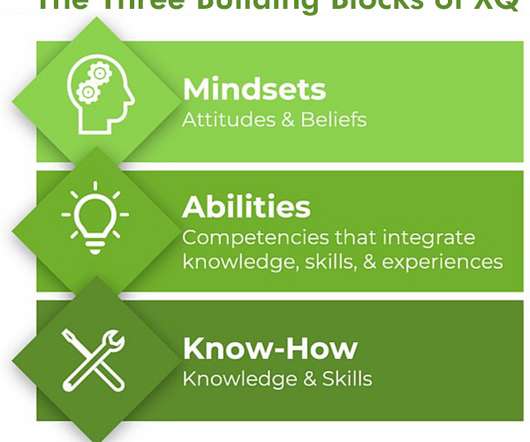Experiential Intelligence: What It Is and How to Grow It
Leading Blog
JANUARY 20, 2023
We create meaning or intelligence through a process that is based on three elements or building blocks: Mindsets: Your attitudes and beliefs about yourself, other people, and the world. Know-How: Your knowledge and skills. This includes both formal education and tacit knowledge that is learned through practice or performing.












Let's personalize your content